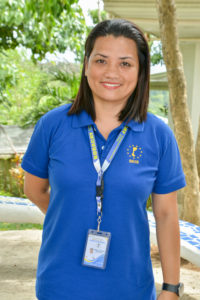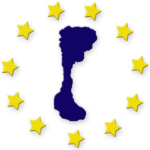Kindergarten 2
Welcome to the Kindergarten 2 page
Below you can find out a little more about school life and what we get up to in K2.
Our Teachers

Ms Jossa Sacapano
Kindergarten 2 Teacher

Ms Annafel Malones
Teacher's Assistant
Curriculum Overview
Language Arts
Reading
- Identify and sound out small and capital letters Aa-Zz.
- Read cvc and consonant blends.
- Identify and read sight words.
- Read from left to right
- Identify the title of a story
- Understand the difference between author and illustrator
- Read and understand short and simple sentences
Writing
- Write in upper and lower case Aa-Zz letters.
- Follow lines when writing letters.
- Write complete name.
- Spell cvc and consonant blends.
- Forms a sentence orally before writing.
- End sentences with a punctuation mark
- Puts space in-between words when writing sentences
Listening & Speaking
- Identify beginning, middle, and ending sounds
- Identify rhyming words
- Ask and answer questions about a text
- Use descriptive words in expressing ideas and feelings clearly
- Retell and arrange events of a story in chronological order
- Identify major characters, settings, and events in a story
- Engage in and retain conversations with peers
- Predict an outcome of a story
Grammar
- Identify, and describe nouns, verbs, adjectives, prepositions and pronouns
- Identify common and proper nouns
- Start writing a sentence with a capital letter
- Ends a sentence with a punctuation mark
- Demonstrate understanding of frequently occurring verbs and adjectives by relating them to their opposites.
Social Studies
Time of my Parents and Grandparents
- Describe how they are unique amongst other children
- Obey and understand the importance of rules
- Obey and understand simple procedures given
Where I am in the World
- Identify and name different kinds of maps
- Locate places using cardinal directions
- Name and locate continents and oceans in the map
- Identify and describe landforms and bodies of water
- Describe and name different habits of a happy and productive child
Culture Identity and Community
- Identify their family members and their roles
- Recognize the difference of one family to another
- Describe the importance of teamwork
- Describe and name different ways of working together effectively
Physical Education
- Taps a ball using the inside of the foot, sending it forward
- Performs jumping and landing actions with balance.
- Throws underhand with opposite foot forward
- Drops a ball and catches it before it bounces twice
- Travels in general space with different speeds
- Recognizes that when you move fast, your heart beats faster and you breathe faster
- Follows directions in group settings (safe behaviors, following rules, taking turns)
- Travels in three different pathways
- Follows instruction and directions when prompted
ICT
Introduction to ICT
- Know the meaning of ICT
- Name and identify the major parts of the computer
- Know the rules in using the computer and ICT Laboratory
Mouse Skills
- Hold the mouse properly
- Use the pointing device to practice clicking (left-click and right click), dragging, double-clicking and highlighting
- Click desktop icons to open applications
Keyboard Skills
- Familiarize with keyboard keys
- Type letters, numbers and words
- Work with uppercase and lowercase
- Capitalize letters using Caps Lock and Shift keys
Digital Painting
- Insert different shapes
- Resize the shape
- Color shapes and images
- Insert labels
- Draw images using the mouse
Mathematics
Numbers & Operations
- Represent count and write numbers 1-100.
- Count to 100 by ones and tens.
- Compare the number of objects in two sets.
- Add and subtract within 10.
- Solve word problems in addition and subtraction.
Algebraic Thinking
- Use various strategies to find out two numbers that makeup numbers 1-10.
- Solve for missing numbers in addition and subtraction.
- Use various strategies to represent addition and subtraction.
- Uses numbers to decompose numbers 1-20.
Geometry
- Analyze and compare two-dimensional shapes.
- Name, describe, and identify two-dimensional shapes.
- Analyze and compare three-dimensional shapes.
- Name, describe, and identify three-dimensional shapes.
- Problem solving through using various strategies.
- Use prepositions to describe shapes in the environment.
Measurement & Data
- Observe and compare lengths and heights of two objects.
- Group objects into different categories such as shape, color, size, etc.
- Understand what a graph is.
- Make a graph based on gathered data.
- Read a graph to count objects that have been classified into categories.
Science
Introduction to Science
- Name and describe the 5 senses
- Identify and describe scientific skills
- Identify different scientific tools and how they are used
Physical Science
- Describe and differentiate day and night
- Sort and describe matter, and describe how it changes
- Describe and differentiate hot and cold temperature
- Observe and describe how things move (push and pull, fast and slow)
- Describe gravity
- Describe what magnets do
- Observe and describe sound, light, and heat energy; how it’s made or where it comes from
Life Science
- Describe and differentiate living and nonliving things
- Describe and differentiate the different kinds of plants and animals
- Identify how plants and animals grow and change
- Identify what plants and animals need
Earth and Space Science
- Identify Earth’s resources and their uses
- Name and describe different types of weather and season
Art
Artistic Perception
- Recognize and identify simple patterns found in the environment
- Name art materials
- Identify the lines, shapes, forms, and colors in an artwork
Creative Expression
- Use lines, shapes, forms, and colors to make patterns
- Use scissors and glue in making art
- Express ideas through painting
- Create a 3-dimensional work of art
Aesthetic Valueing
- Discuss their own works of art amongst peers
- Name art materials
- Describe what is seen in selected works of art
- Discuss why they made a particular work of art
- Describe what they like about a specific work of art
Application
- Draw something familiar or is seen or used daily
- Point out images found in their surroundings
- Discuss different media used in making artwork

